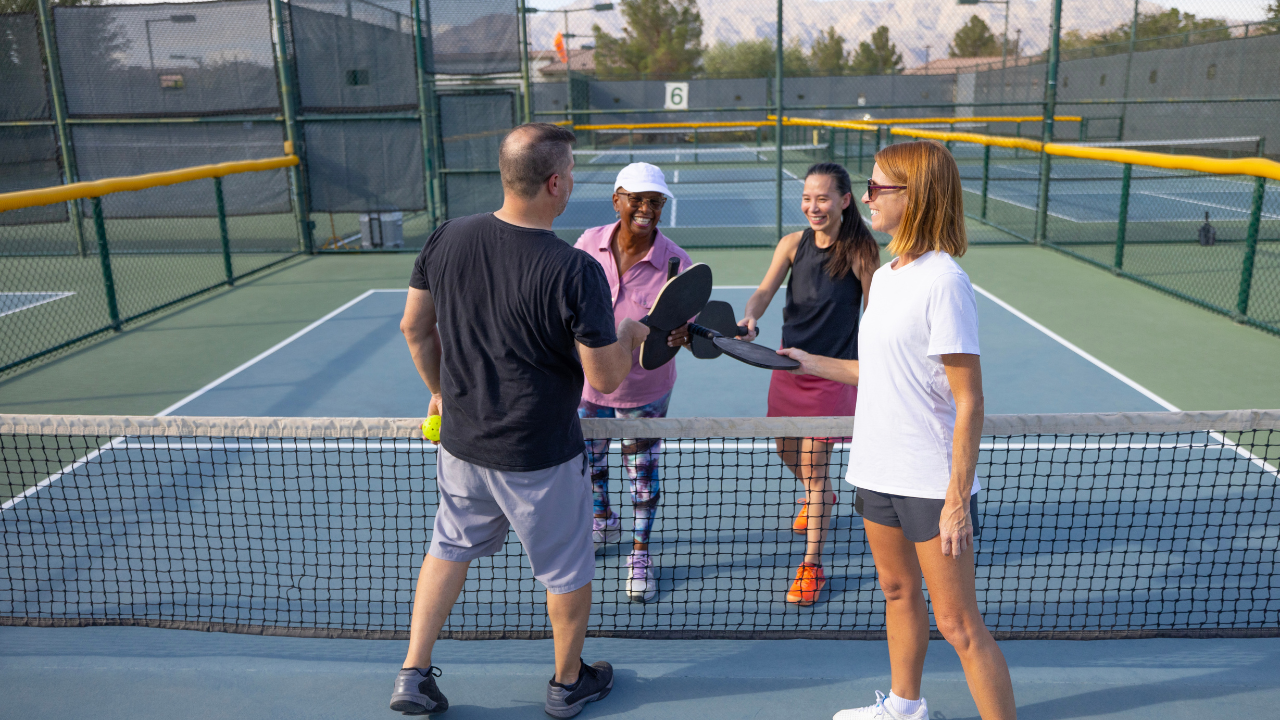Longevity: How to Live a Longer, Healthier Life
Mar 25, 2025
We all want to live not just longer, but healthier, more vibrant, and full of energy. Longevity isn’t just about adding years to your life; it’s about adding life to your years. Research in neuroscience, positive psychology, and holistic health reveals that longevity is shaped by lifestyle, mindset, and environment - not just genetics.
The Science of Longevity
Longevity starts at the cellular level. Telomeres, the protective caps at the ends of chromosomes, shorten with age, but healthy lifestyle choices can slow this process and extend cellular lifespan. Mitochondria, the energy powerhouses of cells, play a crucial role in longevity, and optimizing their function through strategies like nutrition and exercise enhances vitality.
To improve mitochondrial function, prioritize regular physical activity, especially aerobic exercises like walking, cycling, or swimming, which enhance mitochondrial biogenesis. Strength training also plays a role by increasing mitochondrial density in muscle tissue. A nutrient-dense diet rich in antioxidants, such as leafy greens, berries, and nuts, helps reduce oxidative stress that damages mitochondria. Consuming sufficient omega-3 fatty acids, found in fatty fish and flaxseeds, supports mitochondrial membranes. Fasting, particularly intermittent fasting, has been shown to enhance mitochondrial efficiency and trigger cellular repair mechanisms. Managing stress through mindfulness practices, deep breathing, and sufficient sleep further supports mitochondrial health.
Brain Optimization for Longevity
Your brain dictates your health, emotions, and behaviors. Keeping it optimized is crucial for longevity. Neuroplasticity, the brain’s ability to rewire itself, can be enhanced through lifelong learning, engaging in new experiences, and problem-solving exercises. Vision training, vestibular work, and sensory stimulation strengthen brain function and coordination. Chronic stress accelerates brain aging, so practices like meditation, breathwork, and vagus nerve activation improve resilience.
Sleep is also essential for longevity. Deep sleep allows for cellular repair, memory consolidation, and metabolic regulation. Optimizing light exposure, especially natural sunlight in the morning while minimizing blue light at night, improves circadian rhythms and sleep quality.
Movement & Longevity
Physical activity is one of the most powerful longevity boosters. Strength training preserves muscle mass, improves insulin sensitivity, and reduces age-related decline. Proprioceptive exercises moving your joints in all planes and different directions, can reduce the risk of falls and cognitive decline. Moving regularly throughout the day, not just during workouts, lowers inflammation and enhances overall health.
Joint mobility is essential for maintaining physical function. Vestibular and joint mobility exercises prevent stiffness.
Nutrition & Longevity
An anti-inflammatory diet plays a key role in longevity. Consuming whole foods rich in vegetables, fruits, lean proteins, and healthy fats supports cellular health. Polyphenols and antioxidants found in foods like berries, green tea, and dark chocolate help combat oxidative stress. Omega-3 fatty acids from sources like fatty fish and flaxseeds reduce inflammation and support brain function.
Time-restricted eating, which aligns meal timing with circadian rhythms, has been shown to improve digestion and longevity. Gut health is equally important, as a diverse and well-balanced microbiome strengthens immunity and supports overall well-being.
The Longevity Mindset
A strong sense of purpose is common among the longest-living populations. In Japanese culture, this is known as Ikigai—having a reason for living. Purpose-driven individuals tend to have greater resilience, lower stress levels, and improved overall well-being.
Positive emotions and stress resilience play a significant role in increasing lifespan. Practicing self-compassion, gratitude, and fostering strong social connections are key components of longevity. Engaging with a supportive community and maintaining meaningful relationships enhances both mental and physical health.
Environmental & Lifestyle Optimization
Reducing exposure to toxins and improving air and water quality can have profound effects on longevity. Filtering water, minimizing indoor pollution, and optimizing ventilation can help reduce the impact of environmental stressors. Sensory and environmental optimization, such as exposure to natural light, color therapy, and sound therapy, enhances cognitive function and relaxation.
Engaging in social activities and maintaining strong relationships contributes to emotional well-being and longevity. A strong sense of belonging and regular community interactions promote a positive mindset and a longer, healthier life.
Longevity and the NeuroHP Method
The NeuroHP Method integrates brain-based and holistic health strategies for sustainable longevity. Brain optimization sharpens cognition and nervous system resilience, while body mastery incorporates movement, breathwork, and nervous system activation to enhance vitality. Mind and self-leadership foster emotional intelligence and purpose-driven living. Environmental design ensures optimized surroundings for focus, energy, and relaxation, while sustainable lifestyle practices reinforce long-term stress management, energy control, and habit formation.
Longevity isn’t just about living longer - it’s about thriving. Small, consistent changes can profoundly impact your health and future. Moving daily, eating a nutrient-dense diet, prioritizing sleep and recovery, cultivating a positive mindset, and optimizing your environment are key to living a longer, healthier life.
Start today, and your future self will thank you.
Don't know where to start? Contact us for a free consultation.
This blog is not meant to diagnose or treat any medical conditions. Instead, it aims to provide an overview and present a new perspective.
This content is not based on a specific research study. It is for informational purposes only and not a substitute for professional medical advice. Always consult your healthcare provider with any health concerns. Please read the full Terms and Conditions here.


